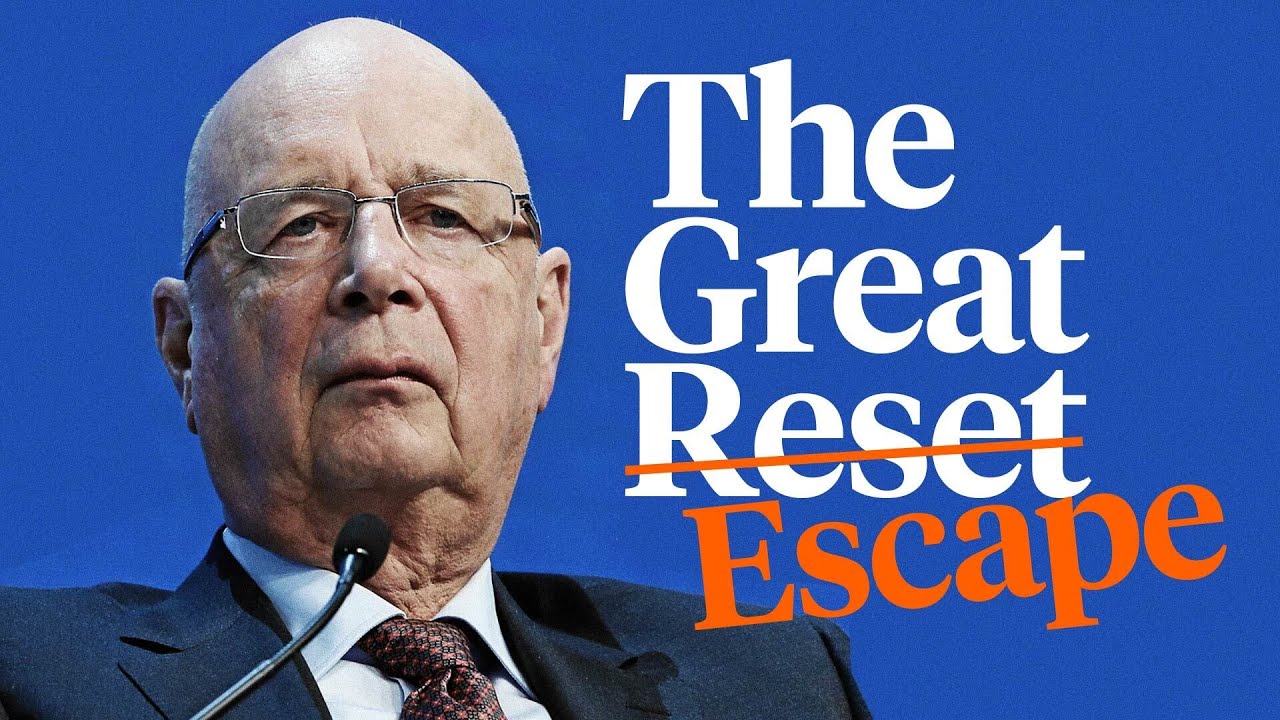Those are the words of Klaus Schwab, head of the World Economic Forum in COVID 19 the Great Reset. People assume we are just going back to the good old world which we had, and everything will be normal again in how we are used to normal. And the old fashioned system is, let's say, fiction. It will not happen. At the latest World Economic Forum meeting in Davos, Schwab set the tone for the conference with his glowing introduction of the opening speaker.
We now welcome His Excellency Xi Jinping, president of the People's Republic of China. Xi laid out his vision of a coordinated global economy. Major economies should see the world as one community and coordinate the objectives, intensity and pace of fiscal and monetary policies. This ideal of a united globe with a coordinated economy managed by experts captures Schwab's vision of the post-COVID world. We have to redefine our social contract. These grand proclamations, the ominous book title and Schwab's odd personal style have led many people to speculate that the Great Reset is part of a conspiracy of global financial elites and politicians to depopulate the planet so they can more easily institute one world government or even that COVID was engineered to that end. Remember the stated goal by these people Billionaire transhumanist elites, the globalists that all get together every year. As the population of the planet,. A transhumanist revolution to make people chronically sick that results in the death of the vast majority of the world population and out of that cataclysm, a new super race.
I don't buy it. Imagine the amount of coordination and airtight secrecy needed for these kinds of far reaching conspiracies of global domination to succeed. They'd be exposed and fall apart, especially in the age of the internet, instead of spinning our wheels searching for a secret agenda. Let's just look at the one that's right out in the open. I think we are moving from short term to long term, from shareholder capitalism to stakeholder capitalism.
What China, the World Economic Forum and Massachusetts Senator Elizabeth Warren have in common is that they favor so-called stakeholder capitalism, which is the euphemism for making companies answer first to special interests. They want to reorganize corporate boards to include representatives from labor, environmental and social justice groups. Warren proposed a bill to require 40 percent of large corporate board seats be elected by workers. In China, the state simply owns or controls a majority stake in most of the country's largest firms.
The World Economic Forum and many state leaders believe global coordination and global governance is essential to manage global problems, climate change, international financial instability and future pandemics. A crucial flaw in Schwab's Great Reset is that it puts too much faith in the ability of governments to re-engineer society in a way that better serves the needs and desires of all citizens. He wants a rethinking of capitalism that escapes the tyranny of GDP growth so that companies create goods and services for the common good instead of maximizing profits. The phrase "common good" points to his fundamental misunderstanding of capitalism, which is nothing new. Central planners were using this idea to maximize their own power at the expense of individual freedom back in the 1940s, when Nobel Prize winning economist F.A.

Hayek wrote "The Road to Serfdom," which would go on to sell over two million copies. Every single one of the billions of people who populate this planet have unique goals and desires that are impossible to reduce to a unified whole. Whether that's GDP or whatever supposedly holistic metrics the WEF wants to replace it with, profits are a signal to entrepreneurs that they are satisfying the disparate needs of their customers.
Schwab is right that the war is the health of the state. As the writer Randolph Bourne once put it, and the government's response to COVID has been similar to military conflict in terms of the cost and the chaos it's engendered. World Wars one and two and the Great Depression ushered in a powerful modern welfare and warfare state that irreversibly altered America and the world. But I'm more optimistic this time. Thanks in large part to the power of technology to provide everyday citizens with an exit instead of the Great Reset, in which sclerotic 20th century institutions accumulate even more power. I think we're entering the Great Escape. This is possible because technological progress is outpacing the ability of the state to control and regulate it. Governments will have no choice but to abandon their efforts to construct physical and metaphorical walls. Technology can be designed to facilitate decentralization in which the flow of money and information can't be controlled. Ideas emerge from the bottom up, expecting governments and international bodies to orient every large company towards some widely agreed upon common good assumes that many of the very institutions that bungled that COVID 19 response can competently handle the planet's most intractable problems.
My hope is that after witnessing the colossal failure of governments in the face of a global crisis, many more people will be looking for a different approach. There's evidence everywhere of the great escape. The US population shift away from expensive, restrictive and poorly governed states and cities, spurred on by the rise of remote work. The exodus from government run schools, the growing use of cryptocurrency, the popularity of encrypted private communication platforms and the expanding reach of independent voices in our increasingly decentralized media. Hayek called central planning the fatal conceit, writing that. And Schwab even touches on this idea, writing that. He dubs this "quantum politics," but never quite explains how policymakers will realistically overcome this dilemma. Maybe there's record low trust in our institutions because the people running them are attempting the impossible: planning the future for billions of people. Humiliating to preside as it may be, Hayek wrote in the Constitution of Liberty. The fear of a great escape of losing control is understandable because there are systemic risks that could destroy human civilization, including future natural or manmade pandemics, runaway inflation and ecological disaster.
Small boats may not survive a storm, but a giant ship is strong enough to brave a storm. But if we're all stuck in the same large ship in the same storm, we're all going down with it when the winds finally get bad enough. Concentrated power itself presents an existential risk. A bad intervention applied to economies of the entire world at once can bring down the entire system. But the distributed power and humble trial and error of markets and decentralized governance brings progress in fits and starts with less risk of total ruin. What Schwab, Xi and central planners around the world miss is that when securing the rights of the individual comes first, the rest tends to follow.
The great escape from the 20th century is underway and there might be nothing they can do to stop it. The question is, do they make getting there easy or does it happen the hard way?.

